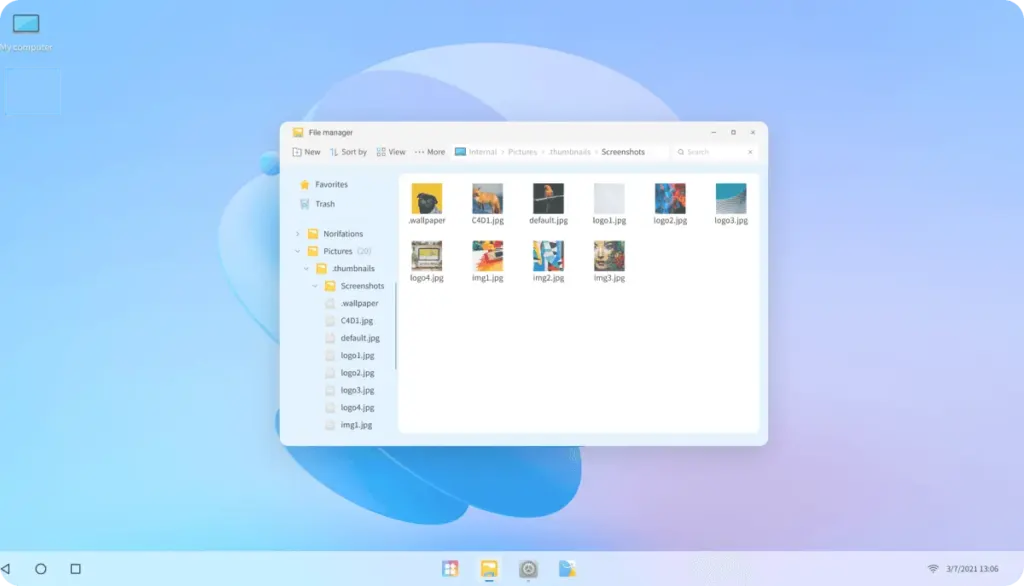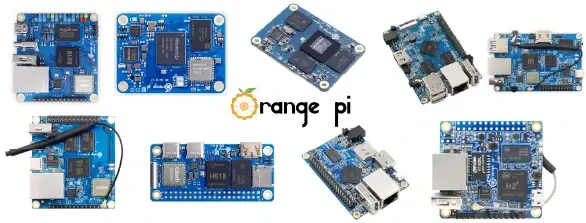There’s a lot of boards SBC boards being released. So many companies jumping to release their own boards. Aside from the well known Raspberry Pi and BeagleBone, the Orange Pi line has been one of the most popular series of boards. It helps that most of the Orange Pi boards pack a punch – they’re typically higher end boards.
The Orange Pi boards are developed by Shenzhen Xunlong Software Co., Ltd., and, while some boards imitate the Raspberry Pi’s form factor (a popular approach and for good reason), others are unique and offer features you won’t see anywhere else like 8K Video support, 2.5Gb Ethernet, etc.
Over the last few years, Orange Pi has released a lot of boards. These are just some of them:
- Orange Pi 5 Plus
- Orange Pi 5 Pro
- Orange Pi 3
- Orange Pi 3 LTS
- Orange Pi 5
- Orange Pi 3G-IoT-B
- Orange Pi R1 Plus
- Orange Pi PC 2
- Orange Pi 4B
- Orange Pi 3
- Orange Pi Zero Plus2
- Orange Pi PC
- Orange Pi PC Plus
- Orange Pi Lite
- Orange Pi R1
- Orange Pi Zero
- Orange Pi One
- Orange Pi Zero2
If you get the feeling there are too many boards, you’d be right. For someone looking to pickup an Orange Pi, it can be hard to figure out where to start. We typically focus our news and reviews on the modern Orange Pi 3 and Orange Pi 5 which are the latest boards, and much of the community is using those same boards.
Fragmented and Legacy Software
A great SBC isn’t just hardware. Sure, without great hardware you can’t build a great system and experience. A slow processor with limited memory will show windows slowly and get bogged down quickly. That’s not usually the problem since Orange Pi boards tend to be higher end boards with lots of processing power compared to other SBCs.
The problem is that the software that powers this Orange Pi boards, that software that is critical to creating a great experience and create great projects is not always that good. If you get an Orange Pi board and try the software you will quickly run into issues Crashes, reboots and limited support for peripherals rears its ugly head.
No one is expecting Orange Pi to solve everything. A community helps build great products together, but in the case of the Orange Pi this is very difficult.
How could it be any different? If the software team is always chasing the latest board, older boards that people buy will lose support over time.
The large number of boards also results in the user community fragmenting. People who could be contributing to make one board great end up working on boards that few people will ever touch.
Is Anyone Updating this?
Let’s look at a concrete example. Orange Pi OS Droid is Orange Pi’s Android based Window manager. The 23.05.1 version uses Android 12 which was released all the way back in 2021.

The concept of Orange Pi giving a Windows or Mac style is something a lot of users want. But such an old version of Android lacks many features and security updates. Features are desirable to everyone, especially to hobbyists and makers, while security updates are critical to anyone trying to build an actual product using Orange.
It’s hard to justify the latest and greatest in hardware when the software that runs on it is a couple generations old. Even worse, it’s often the case that the software crashes or misbehaves. Users on Reddit report that the windows won’t work correctly. Other users online also reports crashes and sluggishness.
Community, Community, Community
One of the powerful things that the Raspberry Pi was able to achieve was a large community. A large reason for this is that RPI has been running for a long time, but it also has to do with the focus of the Raspberry Pi foundation – the smaller number of boards they’ve produced makes development easier for smaller teams. This focus on quality and user experience means users get a polished product they can build on from day one.
A community is critical for any board that is developed to support users who just want to build applications and expect the latest and greatest, as well as keep the momentum going. Orange Pi has a harder time doing this because at heart it’s a Chinese company trying to capture western customers, which presents several barriers. They’ve done an admirable job so far but more is needed to engage people.
Buying a board can be a challenge
Have you tried buying an Orange Pi? There’s a lot of options, and lots of sellers. And it’s all over the place. There are too many boards, with many options and you have to look carefully at what you’re buying and it’s hard for a user to decide exactly from where to buy and what to buy.
Much of this is because Orange Pi lacks a cohesive plan to manage purchasing by users. While Raspberry Pi and others have access to Mouser, Digikey, Adafruit, Sparkfun and others, Orange Pi uses Amazon and Ali Express, two sites that aren’t ideal for selecting a board. They do make the purchase itself easy, but only after you know exactly what you want.

